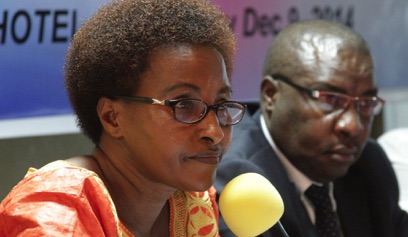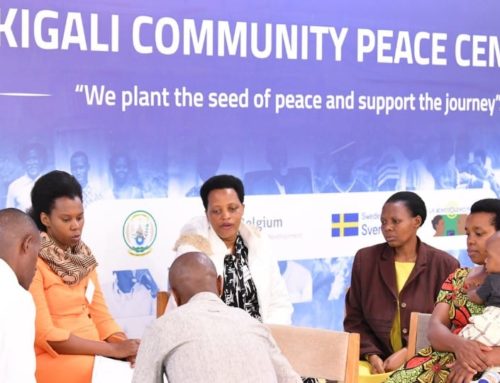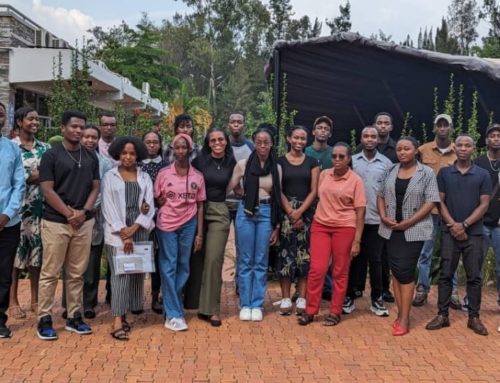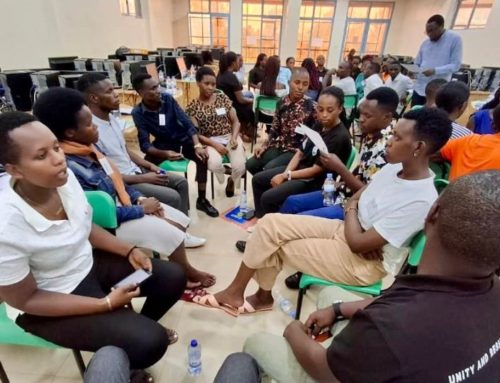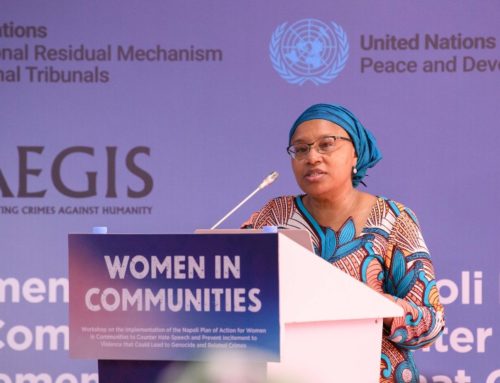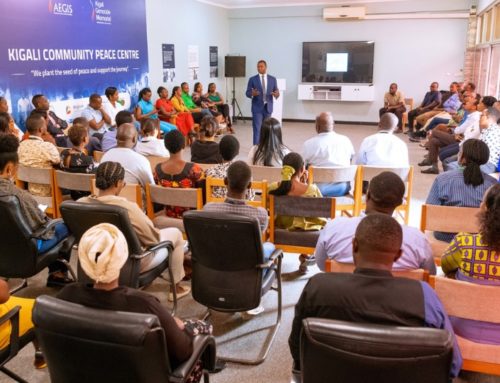Speaking yesterday at a forum of education stakeholders hosted by the Rwanda Peace Education Programme (RPEP) – a multi-organisation partnership led by the Aegis Trust – Dr Joyce Musabe, the deputy director-general in charge of curriculum and pedagogical materials at the Rwanda Education Board, announced that peace education has been added to Rwanda’s new education curriculum, currently under review.
“Peace Education content and methodology has been infused in the draft curriculum as a cross-cutting subject,” Dr Musabe stated.
“Since 2013 Aegis Trust, the Institute of Research and Dialogue for Peace (IRDP), Radio La Benevolencija and USC Shoah Foundation have been implementing a three-year programme, ‘RPEP’, to promote teaching of empathy and critical thinking among us Rwandans,” she said. “I would like to commend the efforts of the Pedagogical Committee composed of specialists to help us achieve the objective of including peace education in the new curriculum”.
RPEP partners set up the Pedagogical Committee, comprising of members of civil society and the education authorities, to assess the state of peace education in the current curriculum and to make recommendations on content and methodologies that could improve formal peace education.
Led by IRDP, the Committee produced policy recommendations based on the expertise of the four organizations involved in the Rwanda Peace Education Programme, and the field knowledge gathered through teacher training, school workshops in Kigali and outreach community visits using different education media (exhibitions, live and testimonies, audiovisual material, radio drama, debates and dialogues, art workshops etc).
Speaking at the Forum, Christine Muhongayire, Member of the Parliamentary Education Commission, commented: “Time has come to integrate peace education in our formal education. Peace culture is not about formal education only but about all stakeholders working together. The first step is therefore to include peace education in our curriculum and the details can be further improved. The reality is that peace education can be infused in any lesson”.
Citing the example of Grace, a ten-year-old Hutu girl who took the responsibility to save a Tutsi baby orphan during the genocide and raise her as her own child, and whose story is part of the RPEP Mobile Exhibition, Muhongayire added: “Sharing such stories of other children’s courage and use of own judgment in difficult times helps building the culture of peace at an early age”.

